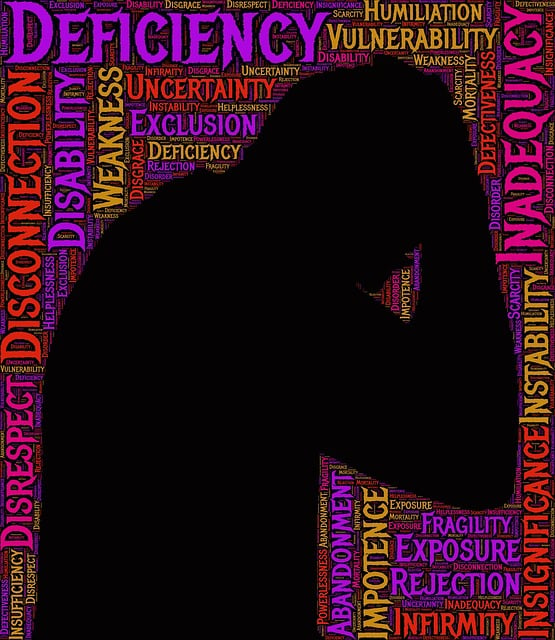Men in Denver face unique mental health challenges driven by stress, anxiety, and depression linked to work and personal relationships. Growing awareness of mental wellness is reflected in increasing searches for "Denver Men's Issues Therapy." Effective marketing strategies should position apps as tools for stigma reduction, offering tailored exercises relevant to men's experiences in the fast-paced urban lifestyle. By addressing burnout prevention, cultural competency, and holistic approaches, services can encourage open dialogue and improve mental wellness in the community.
In Denver, men face unique mental health challenges, with issues often going unnoticed or unaddressed due to societal norms. This article explores a comprehensive marketing strategy for a therapy app tailored to Denver men’s specific needs. By delving into market research and identifying key demographics, we target male users effectively. We propose a strategic approach that emphasizes privacy and specialized services, backed by engaging content and intelligent channel selection. Through measurable goals, KPI tracking, and A/B testing, the app can foster growth while prioritizing user satisfaction in addressing Denver men’s mental wellness concerns.
- Understanding Denver Men's Issues: Market Research and Target Audience
- – Identify common mental health challenges faced by men in Denver
- – Analyze local trends and demographics related to male mental wellness
Understanding Denver Men's Issues: Market Research and Target Audience

Understanding Denver Men’s Issues is key to developing an effective marketing strategy for a mental wellness app. Market research reveals that men in Denver face unique challenges, including a high rate of undiagnosed and untreated mental illness, often exacerbated by societal expectations and the stigma surrounding men seeking therapy. This segment focuses on the specific needs and behaviors of the target audience—men aged 25-40 in the Denver metro area.
Through surveys, focus groups, and data analysis, it becomes evident that many Denver men struggle with stress, anxiety, and depression, often related to work pressure, personal relationships, or a combination of both. Moreover, there’s a growing awareness about mental wellness, indicated by increased searches for “Denver Men’s Issues Therapy” and interest in self-awareness exercises. Marketing efforts should tap into this trend by highlighting the app’s role in Mental Illness Stigma Reduction Efforts while offering practical tools tailored to men’s experiences, ensuring relevance and appeal to the target demographic.
– Identify common mental health challenges faced by men in Denver

Men in Denver often face unique mental health challenges, with stress and anxiety being prevalent issues stemming from the fast-paced urban lifestyle. According to recent studies, burnout prevention is a significant concern for working men, as the demanding nature of Denver’s job market can lead to excessive work hours and compromised well-being. Many men struggle to prioritize self-care due to societal expectations and a reluctance to seek help, often delaying or avoiding therapy despite the availability of excellent healthcare services tailored to their needs.
Cultural competency training for healthcare providers is essential in addressing these Denver mens issues therapy requirements. By understanding the cultural barriers that may prevent men from accessing mental health support, therapists can create inclusive environments fostering open dialogue and self-awareness exercises. Encouraging men to participate in stress management techniques and promoting conversations around emotional well-being are key steps towards improving mental wellness in the community.
– Analyze local trends and demographics related to male mental wellness

In Denver, the landscape of mental wellness is evolving to address a growing awareness and demand for services among men. Local trends reveal an increasing interest in proactive mental health management, with a particular focus on resilience building and stress reduction techniques. Men are seeking holistic approaches that integrate mindfulness meditation and other therapeutic practices into their daily routines. This shift reflects a broader cultural movement towards destigmatizing mental health issues and embracing open conversations about male emotional well-being.
Demographically, Denver’s diverse population offers unique insights. Research suggests that younger men, particularly those in urban areas like downtown Denver, are more likely to engage with digital solutions for their mental wellness. This presents a strategic opportunity for app developers targeting the “Denver Mens Issues Therapy” market. By understanding these trends and tailoring marketing efforts to resonate with specific demographics, apps can effectively promote mental wellness, resilience building, and mindfulness meditation as accessible and valuable tools for men’s emotional health.
In focusing on the mental wellness of Denver men, it’s clear that a tailored marketing strategy is key. By understanding the unique challenges and trends within the local community, mental health apps can effectively reach their target audience. Through market research and precise targeting, these apps can offer relevant, accessible support for Denver men seeking therapy and improve overall mental wellness in the city.














